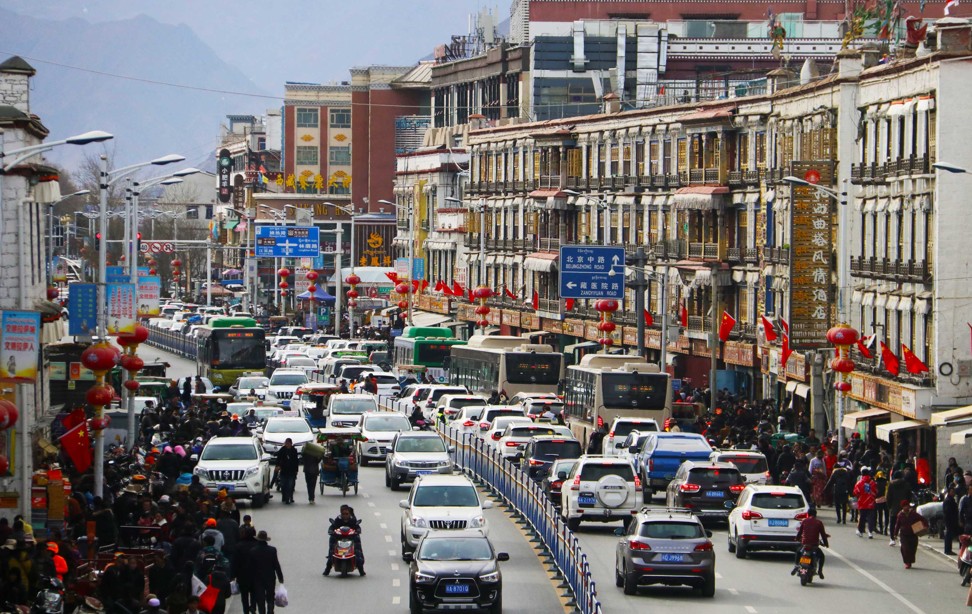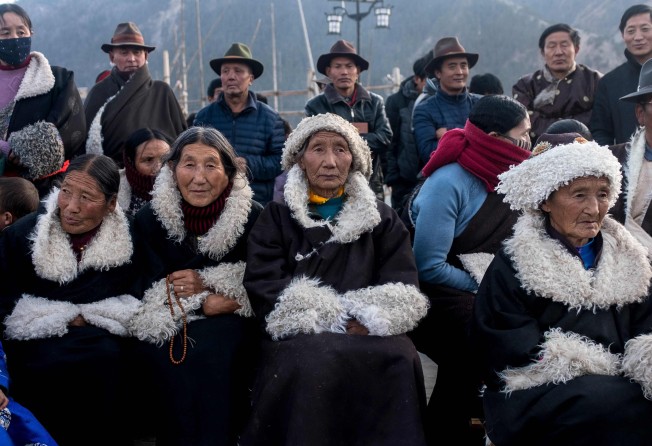
Stop treating all Tibetans like separatists, army soprano tells political meeting
Prejudice against ethnic minorities has been rampant since unrest in Lhasa a decade ago, veteran singer says

An army soprano with more than 20 years of service appealed to China’s central government on Tuesday to stop treating ethnic Tibetans as if they were separatists.
Speaking during a panel session at the Chinese People’s Political Consultative Conference (CPPCC), Guowa Jiamaoji, who was born in a Tibetan area of northwest China’s Qinghai province, said the discrimination shown by the authorities against people from her ethnic group was “detrimental to national unity”.
“I don’t think they should impose measures intended to deter separatists on the whole Tibetan race,” the 54-year-old said.
“It’s like there’s an order from above [for all] to follow.”
The prejudice was born out of the incidents of March 2008, Guowa said, when a series of riots and clashes broke out in Lhasa, the capital of Tibet, and quickly spread across the autonomous region.
The initial protests were mostly directed at Han Chinese – by far the country’s largest ethnic group – and resulted in a violent backlash on March 14 that left 13 people dead and more than 100 injured.
Almost exactly a decade on from the tragedy, Guowa, who has performed at numerous events for high-ranking officials, said she clearly remembered the prejudice she experienced in the aftermath of the unrest.
“One time I led a group of performers to Beijing,” she said. “Everyone checked in to their hotels, but I wasn’t allowed to, because I was Tibetan.”
Tibetan-language activist faces court in China on separatism charges after appearing in New York Times video
Despite her military rank and status as a member of the CPPCC – China’s political advisory body – she said the hotel staff simply refused to let her in.
“I showed them my CPPCC membership ID and my military ID but still wasn’t allowed to check in. I had to stay at a friend’s place,” she said.
The incident was not an isolated one, she said, adding that in the years that followed she witnessed numerous examples of prejudice against Tibetan cadres, especially in Han-dominated areas. She declined the Post’s request to provide more specific details.
Although Beijing says it treats all ethnic groups equally, it is not uncommon for local authorities to discriminate against minorities.
Guowa said that even in everyday matters, such as telecommunications, there was evidence of an uneven playing field.
“The mainland has a 4G network already, but in many parts of Tibet and Xinjiang [a restive western region that is home to the ethnic Uygur people], the network is still only 2G,” the singer said.
“Of course, it might be deliberate that the networks there are not so strong.”
Beijing has made no secret of its concerns about the rise of separatist forces in Tibet and Xinjiang, and has responded by significantly increasing security and surveillance in the region, a move that has sparked claims of human rights abuses by international groups.
One way to help ease tensions in the region would be to increase the number of people from minority groups in positions of authority, Guowa said.
“Native cadres will stay here forever,” she said. “But cadres sent from the mainland only stay for two or three years before they are promoted to higher office.”
Having more local people in power would help the party to win hearts and minds, she said.
“Local herders and farmers listen to the monks at their temples, and they would also listen to officials if they could relate to them better.”
